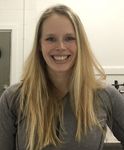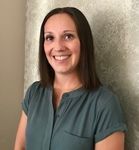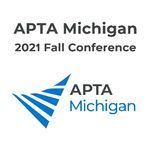APTA Michigan 2021 Fall Conference Session Information for Saturday, October 16
←
→
Page content transcription
If your browser does not render page correctly, please read the page content below
APTA Michigan 2021 Fall Conference
Session Information for Saturday, October 16
Implicit Bias in Messaging and Healthcare: 8:00am – 10:00am
If you have a brain you are biased. Implicit bias is established by biology and shaped by social conditioning, which is hugely
impacted by the messages we receive every day. Evidence demonstrates that biases permeate the healthcare sector on
both an individual an organizational level, playing an important role in health disparities. If healthcare professional
continue to operate without an awareness and understanding of bias, disparities will continue to remain vastly untouched.
During this session we will establish baseline awareness and understanding of how implicit bias operates in the human
brain, demonstrate how implicit bias is interwoven in societal systems like the media and healthcare, and identify
strategies to reduce bias in decision making and maximize patient wellbeing.
Yesenia Murillo is devoted to dismantling targeted and systemic inequities through structural
and organizational change. Yesenia is an Equity and Cultural Competency Practitioner working
for the Michigan Department of Health and Human Services since 2017. In her current role,
she acts as a health and race equity, inclusion, and cultural competency practitioner in
developing and leading curricula, facilitation, technical assistance, tools, plans, resources and
departmental projects. She has spent the past 12 years of her career embedding a social justice
framework to both private and public entities. Yesenia earned her Bachelor of Arts in Sociology
and is an incoming Master of Public Health candidate at the University of Michigan. She
received the following certificates and professional courses: Unconscious Bias Learning Lab;
Cultural Intelligence Facilitator; Technology of Participation (ToP) Facilitation Methods;
Coaching for Equity course; Diversity, Equity and Inclusion in the Workplace. Her specialties
include community organizing, healing circles, training/facilitation, curricula development,
program management, public health programming, public speaking, and diversity, equity, and inclusion organizational
operation. During her tenure, Yesenia has continuously centered marginalized populations. She has had the privilege of
serving racial/ethnic minority groups, battered women, immigrants and refugees, victims of rape and sexual assault,
formerly incarcerated persons, youth in juvenile correctional facilities, and people with disabilities.
Concurrent Sessions 10:30am – 12:30pm
Long COVID/PASC - Learning From A Physical Therapist’s Lived Experience
As the healthcare world recovers from the acute surges of COVID-19, many of those infected continue to struggle with
symptoms of the disease. They experience persistent fatigue, brain fog, joint pain, breathlessness, and more. These, often,
young, fit, and otherwise healthy patients have suddenly found themselves facing the difficulty of chronic illness. The
physical therapy profession is poised to facilitate recovery, however, typical exercise-based interventions may actually not
be the best course of treatment. Through the lived experience of one clinician infected in March 2020, learn of the latest
research on Long COVID and treatment strategies to finally help those patients who just are not getting better.
Ted DeChane, PT, DPT is a Physical Therapist in Clinton Township, Michigan. He practices mainly
in pediatrics, covering multiple settings including school-based, outpatient, and acute care. Ted
became ill with COVID-19 in March of 2020 and continues to experience persistent symptoms.
After connecting with other therapists afflicted with Long COVID, he became a founding member
of the Long COVID Physio group and has since advocated for proper patient care and awareness.Exercise During Pregnancy & Postpartum – Considerations for Core and Pelvic Health
During pregnancy, many women are told to either continue what they’ve been doing for exercise or to only walk & do
yoga. The women who are having kids are on average more active and pursuing fitness more regularly than previous
generations. Pelvic health, especially in the postpartum period has been a taboo topic, leaving women with little
information and guidance during this chapter- with many turning to social media for guidance on #fitpregnancy or
#postpartumfitness . There are many factors that can be modified with exercise during pregnancy that allow the women
to stay active while making educated decisions regarding current and future pelvic/core health. Postpartum is challenging
enough- in returning to exercise or starting exercise postpartum, it’s important to build a foundation to promote core &
pelvic health.
Katie Bacarella. PT, DPT, ATC is a 2014 graduate of University of Michigan – Flint with her
doctorate in physical therapy. As a certified athletic trainer, she specialized in sports & orthopedic
physical therapy early on. After becoming pregnant with her first child in 2017, she developed an
interest in women’s pelvic health, and became a pelvic floor physical therapist. Katie’s workouts
have ranged from long distance running to weightlifting to currently CrossFit (for over 9 years!).
She CrossFitted through two pregnancies and postpartum periods, and has become a pregnancy
& postpartum fitness specialist, holding Pregnancy & Postpartum Athleticism Coach certification.
She is passionate about educating women on all things pelvic health, navigating fitness through
the chapters of womanhood and working with CrossFit athletes. In addition to working as a
CrossFit and pelvic floor physical therapist, Katie coaches CrossFit and a women’s fitness class at
her husband’s CrossFit gym.
Pain in People Living With and Beyond Cancer
This course will utilize a biopsychosocial lens to perform an overview of pain terminology, models for understanding pain,
assessment, and treatment for people living with and beyond cancer. An overview of pain terminology and understandings
of pain will provide for an overarching understanding of the context of pain for this population. Subsequently, review of
the assessment and treatment opportunities will be provided. The scope of this review will include pain from cancer, pain
due to sequelae of cancer treatments, and pain problems comorbid with cancer.
David J Schwarz, PT, DPT, LMT, BBA, NCS is a Physical Therapist (UM-Flint graduate) and
Massage Therapist with over 11 years of healthcare experience in various roles and settings
providing services in aging care, memory care, sub-acute rehabilitation, acute and chronic
psychiatric care, physical therapy, massage therapy, addictions, research and administration. He
has been involved in developing both the MPTA Oncology Rehab SIG and the MPTA Pain SIG. He
lives in Jenison with his wife, two sons, and two dogs, working as a Movement and Pain Specialist
with Dynamic Movement and Recovery and as an Instructor with Dynamic Principles.
Blood Flow Restriction Training in the Clinic – Let’s Get Pumped Up!
In this course you will learn what blood flow restriction is and how it works. We will review what literature shows and
when it is safe to perform in a PT setting. I will share what devices I have decided to use and which ones to avoid. We will
talk through case studies that highlight different aspects of why I choose to use blood flow restriction in my daily practice
with every lower body post-surgical athlete. We will then break out into small groups to let you experience the process of
setting up and exercising with blood flow restriction.Ryan Buteyn. PT, DPT is a physical therapist who has a passion for working with active people
of all ages. He earned his undergraduate degree from Calvin College and his doctorate in
physical therapy from the University of Michigan. He works for Spectrum Health in Grand
Rapids and spends two days a week on campus at Davenport University treating athletes
from all sports. The rest of his time working is spent in the clinic primarily helping athletes
with orthopedic injuries. He is certified in personalized blood flow restriction and
Sportsmetrics which is an ACL injury reduction program. Outside of work, Ryan enjoys cycling,
fishing, camping and spending time with his wife and 2 young children.
Concurrent Sessions 2:15pm – varying end times
Post-Intensive Care Syndrome: Considerations for Post-Acute Rehabilitation
Each year, thousands of Michiganders will survive a course of critical illness, and discharge from the hospital. As more
individuals are surviving an ICU stay, the long-term impact of critical illness on quality of life has been highlighted. The
COVID-19 pandemic thrust the challenges of ICU survivorship into the spotlight, however, these problems are not new; as
described in 2010, ICU survivors are “discharged to face the complex burdens and legacies of surviving a potentially fatal
disease, often after harsh and painful treatment.” The concept of Post-Intensive Care Syndrome (PICS) has garnered
increased focus from healthcare practitioners along the continuum of care. With increasing awareness of the sequelae of
critical illness, post-acute rehabilitation providers are now, perhaps more than ever, called upon to address the needs of
this population. This presentation will outline the specific impairments of ICU survivors, explore methods for assessment
and intervention in this population, and discuss considerations for physical therapists providing care for ICU survivors
across the spectrum of settings.
Evan Haezebrouck, PT, DPT, CCS is passionate about acute care physical therapy and ICU
rehabilitation. He currently practices at University of Michigan Hospital in both acute care and
in the University of Michigan Post-ICU Longitudinal Survivor Experience (UM-PULSE) clinic. A
board certified Cardiovascular & Pulmonary Clinical Specialist, Evan mentors within the
University of Michigan Cardiovascular & Pulmonary Residency program at Michigan Medicine.
Career interests include ICU rehabilitation, physical therapy in chronic lung disease, and
improving outcomes for survivors of critical illness. Evan received a BS in Health and Exercise
Science from Colorado State University, and Doctor of Physical Therapy degree from the
University of Colorado Denver.
Stephanie Kostsuca, PT, DPT, CCS
Stephanie received her Doctor of Physical Therapy degree from Temple University in 2009.
She became Board Certified in Cardiovascular and Pulmonary Physical Therapy in 2017.
Currently, she is a PT cardiopulmonary clinical specialist and Director of the VA Ann Arbor
Cardiopulmonary PT Residency Program. Her current role includes coordinating the inpatient
and outpatient cardiac and pulmonary rehabilitation programs, organizing the ICU early
mobility program and Post-Intensive Care Syndrome Clinic, and teaching in the Residency
program. Her research in the area of pre-operative gait speed testing prior to open heart
surgery has been published in the Journal of Cardiopulmonary Physical Therapy. She has been
an MPTA and APTA, Cardiopulmonary Section member since 2009.
Clinical Practice Concepts and Decision Making for Early Childhood Mobility
This course will concentrate on understanding practice concepts to support on-time pediatric mobility training, and clinical
decision making for dependent vs. independent mobility. The course will also describe steps for successfully obtainingpediatric Durable Medical Equipment and provide information on available resources and and organizations for aid in
early mobility.
Rebecca Koepke, PT, DPT, PCS is a physical therapist at Phoenix Children’s Hospital in
Phoenix, Arizona. She received her undergraduate degree in Neuroscience from Central
Michigan University in 2012, and her Doctor of Physical Therapy degree from A.T. Still
University in 2015. She received her Board Certification in Pediatrics in 2019, and Brain Injury
Specialist Certification in 2020. She serves as an adjunct faculty member for Creighton
University’s Physical Therapy Department in the pediatric curriculum at their new Phoenix
campus. Her primary area of clinical practice is hospital-based outpatient pediatric neuro-
rehabilitation including acquired and traumatic brain injury, concussion, spinal cord injury
and pediatric neuro-oncology, along with general developmental delay, genetic and
orthopedic conditions. She is the primary physical therapist involved in the Seating and
Mobility Clinic at Phoenix Children’s Hospital, where she has experience providing
collaborative care with the Physical Medicine and Rehabilitation physician team and
Assistive Technology Professionals to address pediatric seating, mobility and other durable
medical equipment needs. She is a volunteer with Phoenix Children’s Hospital’s Go-Baby-Go program, and continues to
grow her passion with pediatric mobility and accessibility, and finding ways to allow children to explore and navigate their
environment at their highest level of functional independence.
Exercise Oncology – Transforming Research to Practice
Persons’ physical function is often severely affected by cancer and related treatment(s). An individualized exercise
program has been shown to improve physical function as well as quality of life. However, exercise programs are often
generic, sub-threshold, and lack progression. This course will review current research regarding exercise (aerobic,
resistance, mobility, and balance). Further, it will review the 5 levels of prevention in cancer care and the benefits of
exercise in each level. Lastly, it will also review assessing physical function (more specifically functional performance
status) along with developing an appropriately dosed individualized exercise program based on current research.
Andrew Chongaway PT, DPT, OCS
Andrew Chongaway is a Senior Physical Therapist at Beaumont Health Royal Oak Hospital.
He is a Board Certified Oncologic Clinical Specialist and has also obtained credentials as an
ACSM Certified Exercise Physiologist and ACSM/ACS Certified Cancer Exercise Trainer. With
his knowledge background in exercise testing and prescription and oncology rehabilitation
he was selected to author the Exercise Testing and Prescription chapter in Oncology
Rehabilitation: A Comprehensive Guidebook for Clinicians, 1st edition that will be published
in 2022.
Dr Deb Doherty PT, PhD is the Chairperson of the Human Movement Science Department
in the School of Health Sciences and an Associate Professor in the Physical Therapy Program
at Oakland University. She is an advanced practitioner in the treatment of patients
diagnosed with cancer. Dr. Doherty co-developed the first international online Graduate
Certificate for Oncology Rehabilitation Program at Oakland University for physical therapists
which began fall of 2012. She developed the Comprehensive Oncology Rehabilitation
Program at St. Mary’s of Michigan in Saginaw Michigan and Hills and Dales Hospital in Cass
City, Michigan. Her research focus is on Oncology Rehabilitation with an emphasis on
Survivorship Programs and Prehabilitation. She is serving as the Michigan Physical Therapy
Association representative for the Michigan Cancer Consortium serving as Co-Chair of the
Board, as well as serving as a member of the membership committee, serving as the
Survivorship Workgroup Chairperson. Dr. Doherty championed the development of the
Oncology Rehabilitation Special Interest Group for the Michigan Physical TherapyAssociation and now serves as the Research Committee Chairperson. The MPTA Oncology Rehabilitation Special Interest
established the “Deborah Doherty Oncology Rehabilitation Excellence Award in 2018 and awarded Dr. Doherty with this
award for 2018 and 2019. Dr. Doherty is the owner of a Physical Therapy Private Practice called Center for Survivorship.
She treats patients diagnosed with cancer throughout the continuum of care. Dr. Doherty received her BS in Physical
Therapy from Northwestern University, her MA Degree from Central Michigan University and her PhD from Michigan State
University in Anatomy. She is a 14-year breast cancer survivor and a frequent lecturer on the topic of Oncology
Rehabilitation to medical professionals and survivors.
Blood Flow Restriction Training in the Clinic – Let’s Get Pumped Up! (Offered Twice)
In this course you will learn what blood flow restriction is and how it works. We will review what literature shows and
when it is safe to perform in a PT setting. I will share what devices I have decided to use and which ones to avoid. We will
talk through case studies that highlight different aspects of why I choose to use blood flow restriction in my daily practice
with every lower body post-surgical athlete. We will then break out into small groups to let you experience the process of
setting up and exercising with blood flow restriction.
Ryan Buteyn. PT, DPT is a physical therapist who has a passion for working with active people
of all ages. He earned his undergraduate degree from Calvin College and his doctorate in
physical therapy from the University of Michigan. He works for Spectrum Health in Grand
Rapids and spends two days a week on campus at Davenport University treating athletes
from all sports. The rest of his time working is spent in the clinic primarily helping athletes
with orthopedic injuries. He is certified in personalized blood flow restriction and
Sportsmetrics which is an ACL injury reduction program. Outside of work, Ryan enjoys cycling,
fishing, camping and spending time with his wife and 2 young children.You can also read



























































